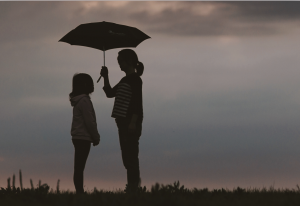3 Essential Steps to Take Before Getting Angry at Your Kids
 For parents, there is a better way to handle your own anger before you act.
For parents, there is a better way to handle your own anger before you act.
Many moments in parenting prompt us to move into action. We act urgently when there is clear danger: a child running into the street or one child hitting another. However, we often come to regret reactions motivated by an urge to “teach our kid a lesson” or that come from moments of emotional intensity. In hindsight, our reactions were an attempt to address our own anger and/or fear in the heat of moment and don’t actually serve to help teach our children, other than perhaps to teach that intense emotions yield harsh responses.
There is another path forward that produces far better results, supporting development and growth of self-regulation. This path comprises three essential steps:
1. Regulate
The first is to attend to regulation. As parents, we have to recognize that the ability to notice and regulate one’s emotions is an emerging capacity. Emotions, especially those of our children, are “contagious” and often activate us! Our goal is to show our children how to grow their capacities to feel, name, and regulate the intensity of their emotions.
When our emotions get big too, we undermine our child’s opportunity to do this learning. Consequently, we need to focus on our own emotional regulation first to be able to nurture emotional regulation in our children. The challenge for us as parents is then to remember to notice when we become dysregulated, so we can first regulate ourselves and then support our children to practice and build their own ability to calm themselves.
2. Connect
The second step is to connect. Once the internal fire alarms are silenced, it is time to create a sense of safety through connection. While connection may feel to you like you are “giving in” or “not teaching your child a lesson,” that is, in fact, not the case. Your anger/upset is about you as the parent, and while it may teach that behavior has consequences, it doesn’t help your child learn what was going for them that lead to the problematic behavior. The reason you get upset is likely because you want your child to stop doing what she is doing, stop making things difficult, stop annoying or embarrassing you and handle themselves differently the next time.
For a child to learn about what drives their behavior, it takes a compassionate space that offers safety. This is critical to decreasing blame and shame, which is painful and prevents learning. Connection opens the door to supporting personal growth in a way that punishment does not.
3. Reflect
With safety forged in connection, the third step, refection, can take place. Reflection requires openness and curiosity. It is in this vulnerable space where learning about thoughts, emotions, and actions can be considered. Listening and exploring with your child helps them feel supported and encouraged to find the language to understand and express themselves.
Like learning the ABCs, learning to notice and talk about internal experiences comes from linking experience to words. We can nurture this development when we explore with our children what happened around them and inside them that drove the difficult behaviors. This process builds the capacity for hindsight and grows insight, both vital to building self-regulation and self-management. This is the holy grail for parents. This is the privileged space where we can foster self-respect, self-esteem, and self-awareness to guide how our children navigate when confronted with challenging life events.
With regulation, connection, and reflection, action becomes more meaningful. Through this 3-step process, we learn a great deal about our children as they learn about themselves. Reflection itself nurtures your child’s internal growth. When you do need to take action, setting limits or consequences, these are more meaningful when they come from a thoughtful place with the intention to teach to your child rather than a reaction to manage your own emotions.
While your child may be resentful, the links created between their behavior and the consequences develops understanding to help change behavior going forward and decreases the risk of future upsets. Shifting from parenting from a place of upset and reactivity, to a style grounded in regulation, connection, and reflection is the foundation that allows us to help our children develop into insightful, self-aware, and self-respecting individuals.
Tags: angry at my kids, angry parent, communicaiting with your kids, connection, dealing with tantrums, emotional regulation, parenting, parenting advice, parents anger, reacting to kids, reflection, talking to you kids, what to do when I'm angryOne Comment
Comments are closed.










good day
i dont know whats wrong but my daughter is looking to have trouble with me, shes not listening when i tslk to her and when i react shes throws a tantrum